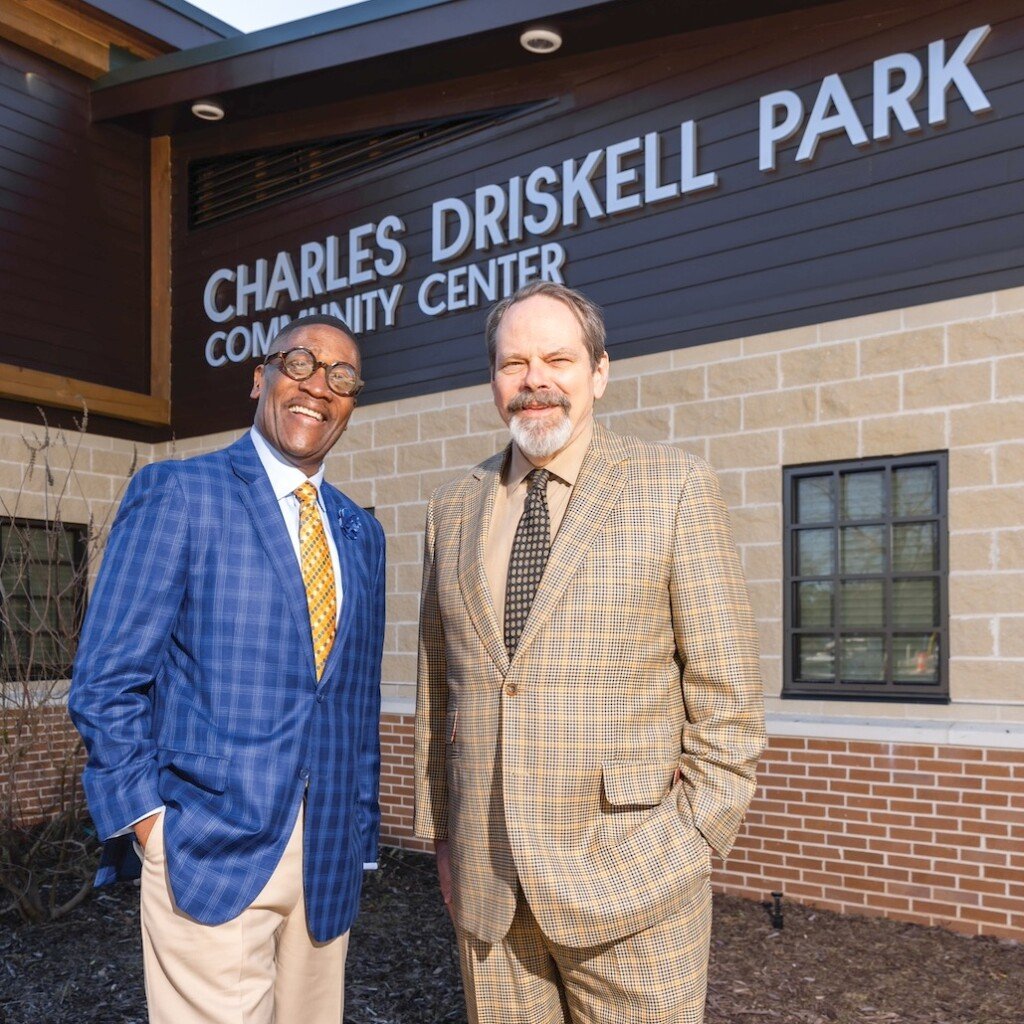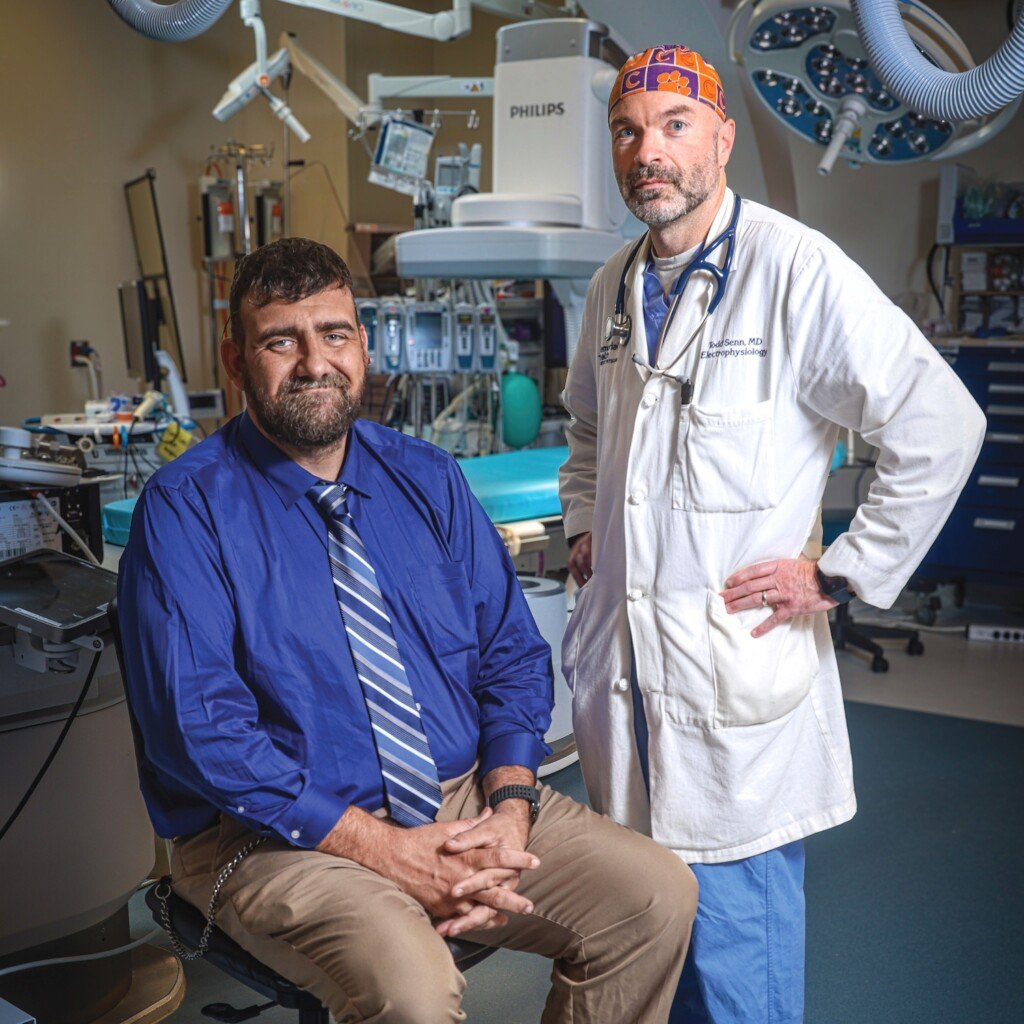Empowering Entrepreneurs in Georgia
In the vibrant and diverse economic landscape of Georgia, small businesses serve as the backbone of local communities and the state’s economy at large. These entrepreneurial ventures, ranging from family-owned shops to innovative tech startups, play a crucial role in fostering economic development, creating job opportunities and driving innovation in Georgia.
To thrive and sustain their operations, small businesses rely heavily on a myriad of resources that support their growth and resilience, and an infrastructure has evolved in the state to help them. From financial assistance and mentoring programs to networking opportunities and regulatory guidance, these resources are indispensable in empowering entrepreneurs to navigate the challenges of the business world and contribute to the state’s economic prosperity.
Advocating for Small Business
For 50 years, the Georgia Minority Supplier Development Council has served as a leading advocacy organization for small business development and supplier diversity, advocating for the implementation of laws, regulations and business practices that foster a healthy business climate.
Recognized as the 2022 Council of the Year by the National Minority Supplier Development Council, the Georgia council is part of that national network of corporations, Minority Business Enterprises and industry experts. The Georgia council certifies minority enterprises, helps them develop their capabilities and connects them with corporate and government entities looking for diverse suppliers. To date, the Georgia council has certified about 1,500 MBEs, representing 60,000 employees and $13 billion in revenue, says President and CEO Stacey Key.

Tools and Training: Antonio Barrios, senior business consultant for the University of Georgia Small Business Development Center at Kennesaw State University, works with Mark Preetorius, the franchise owner of Massage Envy in Canton. Photo credit: Contributed
“We cover all industries – manufacturing, transportation, logistics, professional services, staffing, technology – the whole gamut,” she says of the organization founded as the Atlanta Regional Minority Purchasing Council in 1975 by AT&T, The Coca-Cola Company, Cox Communications, Delta Air Lines, Georgia Power and WestRock.
“Everybody that comes to us is looking to identify suppliers to help them increase profitability and grow sales,” says Key.
Corporate partners want to know they’re doing business with “true minority businesses” and small businesses, she says; that’s the value of the of certification. The process verifies that qualifying business entities are owned by racial and ethnic minorities and validates that they have the proper credentials and documentation needed to do business with corporate supply chains.
“We do that on behalf of the corporations, making sure they are who they say they are as a small business,” says Key. For example, if a certified business wants to connect with Coca-Cola, the council does due diligence on behalf of Coca-Cola before making the connection.
“I’m bringing qualified suppliers to help them speed up their process and have small businesses in the supply chain to bring innovation and quality and, in many cases, lower their costs,” Key says.

Mike Myers, senior business consultant at the UGA Small Business Development Center, works with employees at Tribe Hair Company in Athens.
Once certified, business owners become “corporate ready” through several developmental steps designed to help them operate a successful business. The council provides a series of workshops, conferences and educational programs, which cover topics including financial reporting, access to capital and human resources.
After companies achieve certification and fulfill their developmental process, the council adds the connection piece, facilitating relationships between business owners and corporate procurement and qualified suppliers from over 400 corporate partners, says Key.
“As a whole, you’re seeing more individuals leaving the corporate environment and starting their own businesses,” says Key. “We saw a 25% increase year over year. The No. 1 challenge is access to capital, and talent workforce can be a challenge as well.”
Businesses must also manage through the ever-changing political landscape. “I think with everything going on in Washington, there’s a lot of uncertainty right now, so we’re helping businesses navigate and understand,” says Key, who has spoken recently to several business groups. “I’ve told them, you don’t want to go this alone. You decide what organization – whether it’s us, the Georgia Chamber [of Commerce], their local chamber, or another organization – to work with because it’s a little chaotic.
“There’s a lot going on, and some of it is confusing. So get with a partner who you’re comfortable with, whether it’s [the Georgia council] or someone else, and ride this with them because they have the resources and focus to help you be successful during these difficult times.”
 One group offering resources is the Greater Women’s Business Council, a regional partner organization of the Women’s Business Enterprise National Council. It not only offers national certification for women-owned businesses but also focuses on providing technical programs – mentoring, financial acumen, and operational resources and more – to support the growth and development of these businesses.
One group offering resources is the Greater Women’s Business Council, a regional partner organization of the Women’s Business Enterprise National Council. It not only offers national certification for women-owned businesses but also focuses on providing technical programs – mentoring, financial acumen, and operational resources and more – to support the growth and development of these businesses.
As the group’s president and CEO, Roz Lewis always has at least one finger on the pulse of politics. This year’s presidential administration and policies have presented significant challenges for companies and government departments that have supported diversity, equity and inclusion (DEI), says Lewis. While supplier diversity initiatives have been in place for over 50 years, the programs designed to support the growth and development of small businesses and those with minority, women and veteran ownership – programs that align with DEI – are also being affected.
“Any reduction in these programs would be a setback in equipping women-owned businesses with the essential tools they need to thrive,” says Lewis, noting that, as of 2024, this GWBC region, which includes Georgia, North Carolina and South Carolina, is home to 1,500 women-owned businesses, generating $11 billion in revenue and employing over 50,000 people. “[This data shows] not just economic strength; it reflects a dedication to fostering communities that thrive.”
“…Going forward we’re not only tackling the community at large but making sure we support collegiate and even K-12 entrepreneurship.” – Sheffie Robinson, executive director, Accelerate Augusta
The effects of current policies could follow one of two paths, says Lewis. “One path could have a detrimental effect on our organization, as women-owned businesses and corporate members may feel targeted and disengage from certification or participation. Due to corporate policy shifts regarding the inclusion of diverse suppliers, women-owned businesses may no longer have a seat at the procurement table. However, we hope the other path becomes a more viable option that offers an opportunity amid this crisis to highlight the significant contributions of women business founders and their impact on the economy.”
Expertise Close to Home
From university-led programs to local collaborations, there are numerous other resources available, often at no charge. All have the same goal in mind: Helping small businesses prosper in Georgia.

Resources Aplenty: Miki Edwards, executive director of the Madison Wheelhouse, with mascot Gilligan. Photo credit: Daemon Baizan
One of the state’s top providers of such assistance is the University of Georgia’s Small Business Development Center. With 18 locations throughout the state, SBDC provides tools, training and resources to help small businesses prosper.
Allan Adams, the center’s state director, says individuals can reach out during any stage of launching or operating a small business, from guidance with a simple idea to handling a particular challenge in an established business.
Those in search of assistance initially will be asked a series of questions to determine if the center’s resources are applicable. Once determined to be a fit, the applicant can schedule an appointment with a business consultant.
“Our people have different industry backgrounds across the state. So, if you come into the office in Valdosta and you specifically want help with something and we have somebody with a deep background of that up in Gainesville, you’ll get hooked up with them,” says Adams. “Typically, they’re going to do it online nowadays.”
Relationships between small business owners and the center often continue for years, says Adams. “They can continue to come back to us endlessly as their situation evolves and they face new opportunities or new challenges.
“Typically, they come for a specific purpose and when they get that resolved, they move on. But we’ve got people that have come back at different times over a 20-year period and want help developing a new product line or something like that.”
The center’s economic impact is significant. In the past five years alone, its clients have started 2,182 businesses, created 15,514 new jobs, raised $1.25 billion in capital through loans and equity financing and had $9.5 billion in sales.
Associated in part with the SBDC, Georgia Southern University’s Business Innovation Group was formed in 2014 to coordinate economic development offerings across the state, including incubator locations in Statesboro, Metter and Hinesville.
One of those facilities is a maker space, providing innovators access to office space, manufacturing tools and equipment for as little as $75 per month, says Adams. “They can access all the equipment – 3D printing, laser cutting, [computer numerical control] machinery, welding equipment – so they’re able to develop new concepts, new ideas. And it’s always exciting to see what comes out of there.”
“As a whole, you’re seeing more individuals leaving the corporate environment and starting their own businesses.” Stacey Key, president and CEO, Georgia Minority Supplier Development Council
Those coming for small business development might be entrepreneurs, small business owners or people seeking advice, counsel or resources for a potential small business, says Dominique Halaby, associate vice president for innovation and commercialization at Georgia Southern and director of the Business Innovation Group. While some individuals are assisted through one of the Business Innovation Group’s many strategic partnerships with area business leaders, most are served by university employees plugged into these programs, says Adams.

Offering Assitance: Dominique Halaby, associate vice president for innovation and commercialization at Georgia Southern University and director of the Business Innovation Group. Photo credit: Frank Fortune
Speaking of employees, the Business Innovation Group also has a component that is internal facing and involves industry collaboration, which is especially valuable to employees at the school who have big ideas of their own. The university’s technology transfer program moves a discovery or innovation from the lab to the market for the public benefit.
“[Participants] are going to be faculty that have ideas and concepts, that have conducted research,” explains Adams. “We want to help them commercialize, take it to the next level. That’s either a license agreement or, in some cases, they’re going to launch their own small business. And we’ll be able to assist them in that case.”
Last year, the innovation group assisted 472 businesses, supported over 2,400 jobs and helped access over $18 million in capital. The organization’s results have not gone unnoticed. In 2022, the Business Innovation Group led the charge to have Georgia Southern designated as an Innovation and Economic Prosperity institution by the Association of Public and Land-grant Universities. The designation is held by only three Georgia schools, including UGA and Georgia Tech, and less than 100 institutions of higher education in North America.
Virtual Newcomers
Thirty miles from UGA, The Wheelhouse in Madison is proving that even small towns have a multitude of resources for those interested in creating a small business. About four years ago, some brainstorming among local businesspeople was the catalyst to create the accelerator. Last year the group received a $368,000 grant through U.S. Sen. Raphael Warnock’s office as part of the Minibus Government Funding Bill. The funds allowed The Wheelhouse to hire its first paid employee, an executive director.

Collaborative Workshop: People attend a coffee and conversation event at The Wheelhouse in Madison. Photo credit: Daemon Baizan
“It’s been really cool to watch it forming organically from the talent that was already here in our town looking for ways they could support small business and people growing as entrepreneurs,” says Miki Edwards, executive director. To date, they’ve worked with individuals opening a custom sign business, a food truck, a daycare, a private tennis academy and an interior design warehousing business.
The Wheelhouse has also partnered with the local high school to help implement a statewide program called Foundational Leadership and Entrepreneurship Experience or FLEX, which Edwards likens to a Shark Tank format for high school entrepreneurs. It assists students with entrepreneurial ideas and supports them in preparation for a spring competition.
Earlier this year, the micro-enterprise center Accelerate Augusta opened; it is a $2.3 million joint project of Augusta Technical College and the Downtown Development Authority of Augusta. The accelerator will offer grant opportunities, classes, networking opportunities and other basics that small businesses need, says Executive Director Sheffie Robinson.
“From there we will build a mentor network of area businesses, business owners and subject matter experts, as well as industry folks across the city. We want people to be aligned with folks who’ve actually done this before,” she says. “At some point we will elicit some of our financial partners to offer different capital structures, so we can provide funding opportunities.”
Robinson says there was great interest in the accelerator from would-be entrepreneurs before it even opened. Additionally, they’re seeing a lot of students who want to get involved.
“They’re interested in flexing their entrepreneurship muscles, so going forward we’re not only tackling the community at large but making sure we support collegiate and even K-12 entrepreneurship,” says Robinson. “We have some kids in middle school and high school that already have bustling businesses, and we want them to be represented and supported as well.”
Bottom Line
The Georgia Minority Supplier Development Council’s Key says that when it comes to helping businesses succeed, there’s no such thing as too much knowledge.
“I wake up every day excited about the impact and how we’re creating jobs. Think about 50 years of helping people grow. I’ve seen a company go from two people to 5,000 people and a half a billion dollars,” she concludes. “There is nothing better.”









